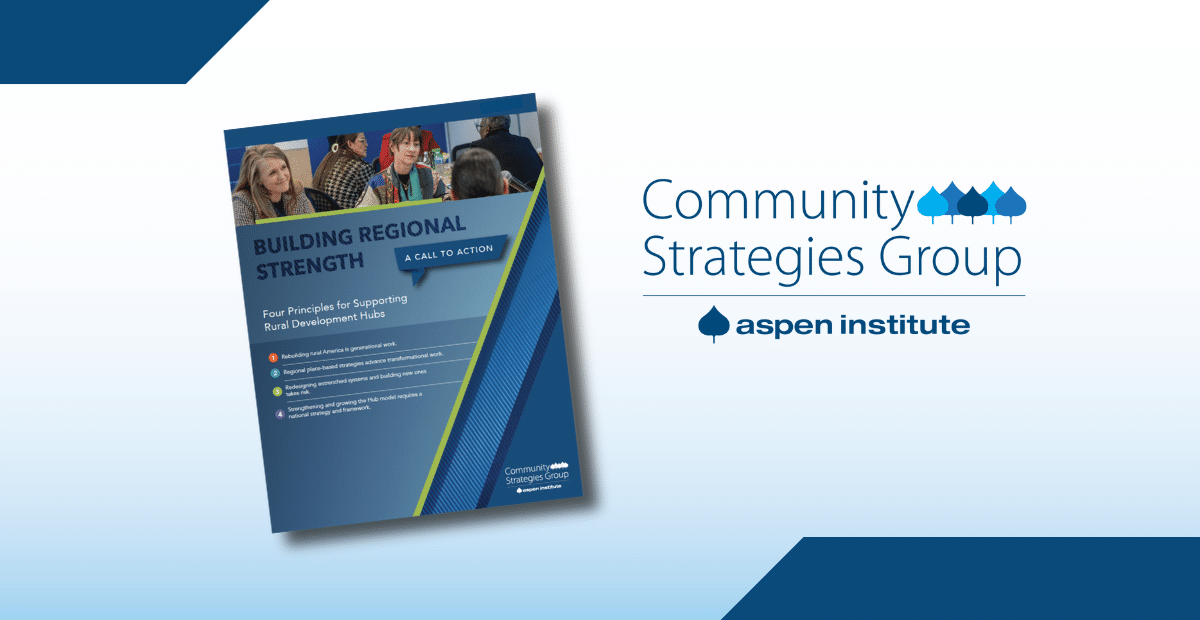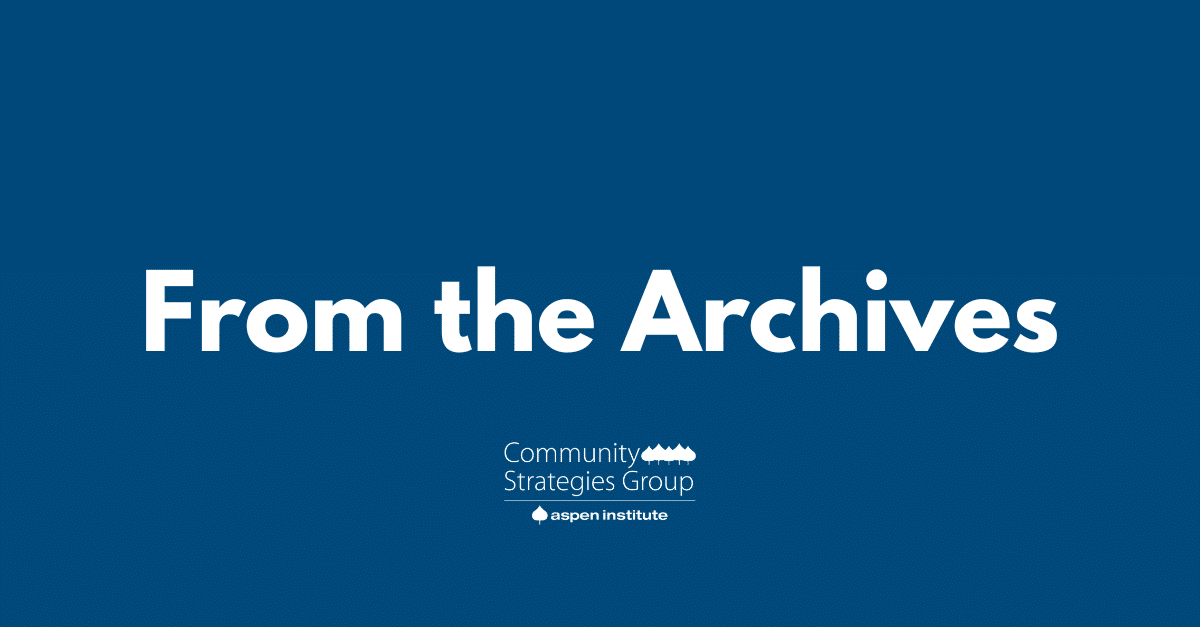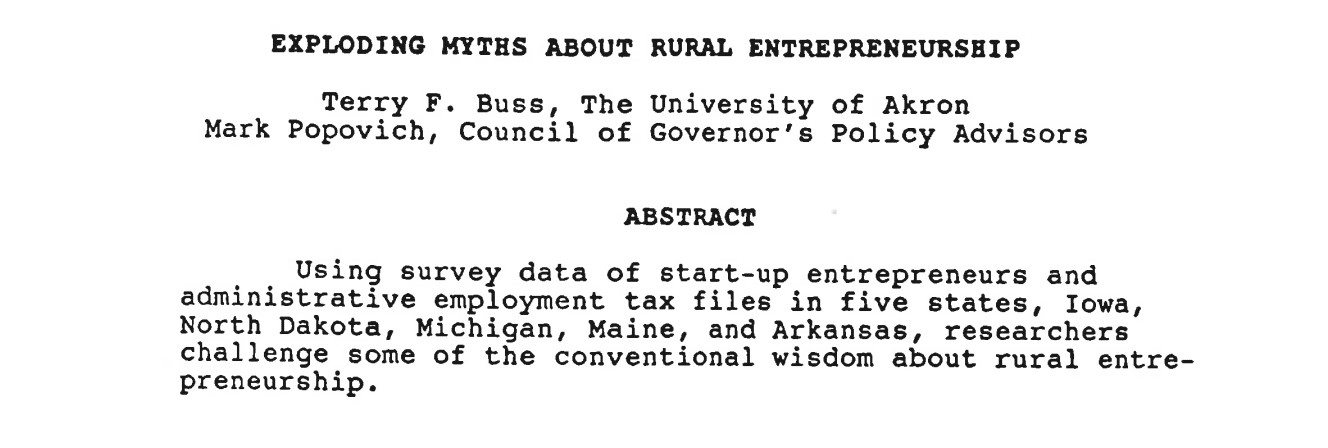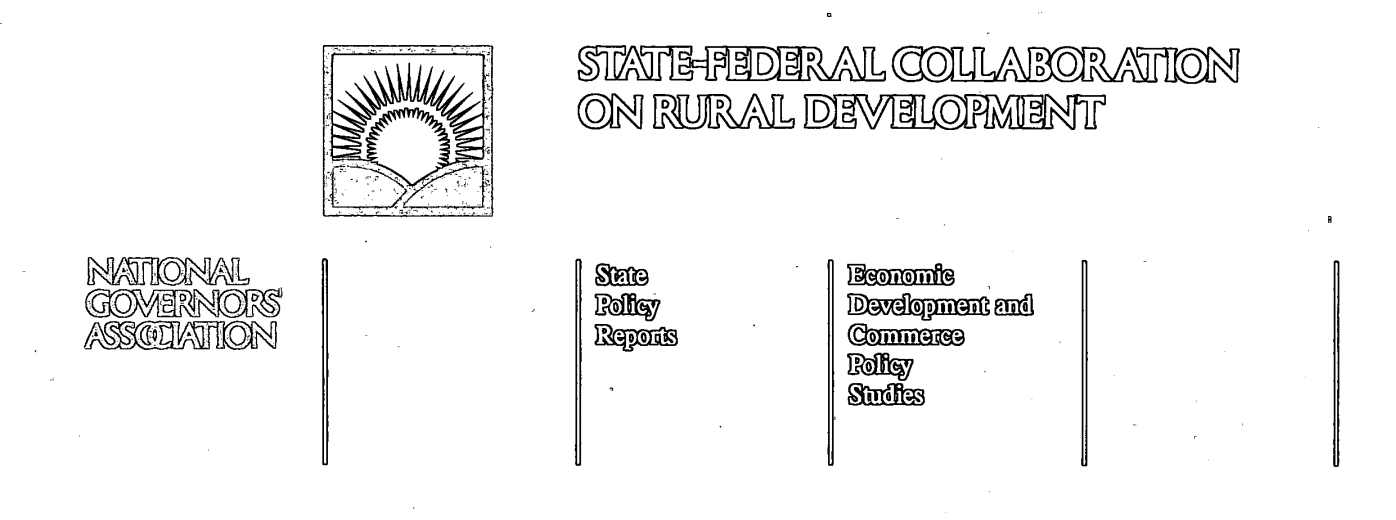Building Regional Strength: A Call to Action
Insights and recommendations to build healthy, thriving rural & Indigenous regions.
Rural Resources, Insights, and Collaborations by Aspen CSG and Partners
Insights and recommendations to build healthy, thriving rural & Indigenous regions.


This document is a collection of papers from an April 1992 conference on "New Factory Workers in Old Farming Communities: Costs and Consequences of Relocating Meat Industries." The conference was sponsored by the University of Kansas and co-sponsored by other universities, with funding from The Ford Foundation in cooperation with The Aspen Institute's Rural Economic Policy Program.

This report from Jobs for the Future, published in August 1992, examines Strategic Development Organizations (SDOs) and their role in state economic development.

This report, "Poverty and Work: Utilization of Labor Resources Among the Rural Poor," by Jill L. Findeis and Stephen M. Smith, was prepared for the Ford Foundation's Rural Poverty Program and the Rural Economic Policy Program of the Aspen Institute in November 1992.

This document, titled "FORM WITHOUT SUBSTANCE, PAST OVER PRESENT: THE INSTITUTIONAL FAILURE OF NATIONAL U.S. RURAL POLICY" by William P. Browne, examines how Congress makes policy, particularly focusing on the use of information and sources of information. The central theme is that Congress is a reactive institution whose choices are limited by its rules.

This report explores the urgent need for policymakers to involve the public in discussions about the economy and the labor market. It also suggests ways policymakers can increase public awareness of these issues. The document highlights a gap between public and policy leaders' understanding of workforce issues, citing a 1991 study by the Public Agenda Foundation.

Document summarizes what the author sees as a failure of rural policy at the federal level, as trapped in an agricultural policy domain.

Report provides insight into five case studies in Iowa, North Dakota, Maine, Arkansas, and Michigan that show disparate rural economies in order to better develop strategies for rural new business entrepreneurship.

This article seeks to broaden the general understanding of rural homelessness and examines trends in rural housing that reduce the ability of poorer residents to secure adequate shelter.

Study explores the broad subject of economic development in the rural state of Mississippi from the perspective of locally elected policy makers.

Report analyzes the impacts of eight rural initiatives put in place under the Bush Administration in 1990.

This report seeks to examine state economic development policy processes in terms of effectiveness.

This paper illustrates that the magnitude of disparities among proposed partners of NAFTA is greater than any disparities that have been associated with prior successful free trade experiences.